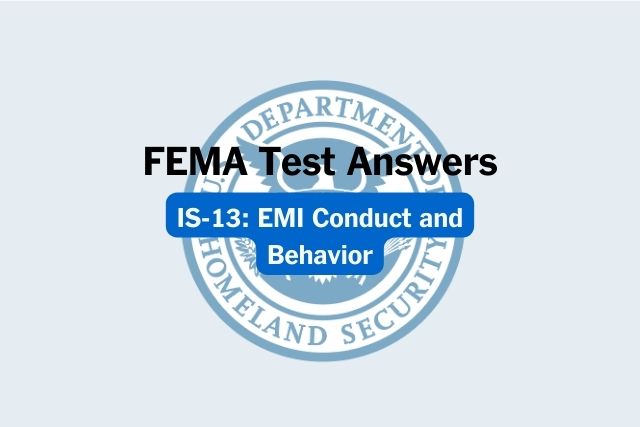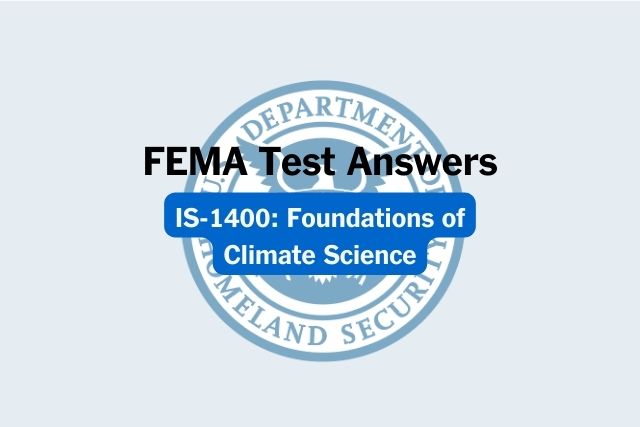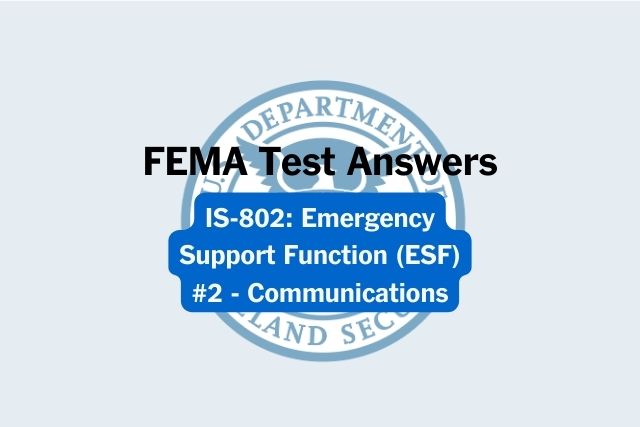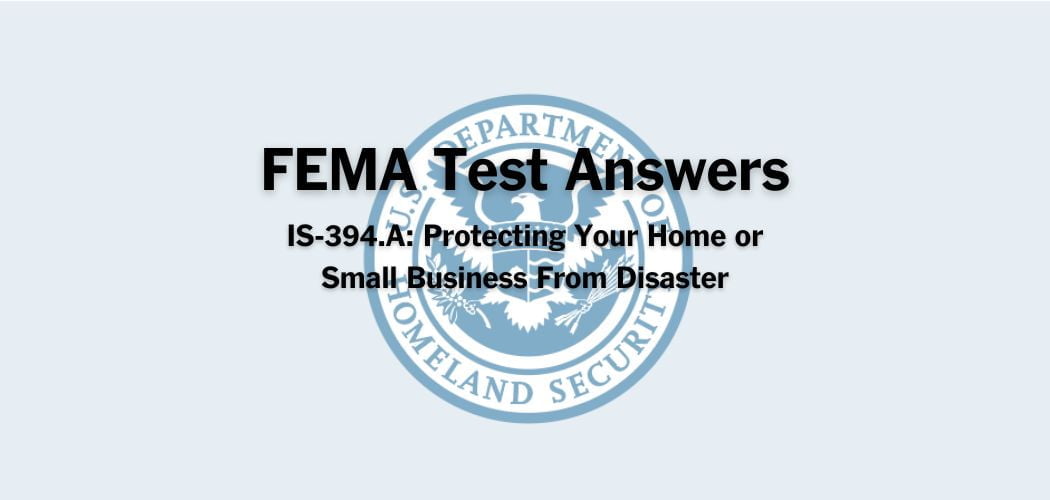Overview: FEMA IS-240.C course was published on 8/13/2021 to improve your leadership and influence skills. This course addresses: Leadership from within; How to facilitate change; How to build and rebuild trust; Using personal influence and political savvy; and Fostering an environment for leadership development.
Primary audience: FEMA IS-240.C is an entry-level course designed for individuals new to the field of emergency management or persons with a desire to understand the fundamentals of emergency management.
FEMA IS-240.C test answers
Each time that this test is loaded, you will receive a unique set of questions and answers. The test questions are scrambled to protect the integrity of the exam.
Question 1. Which of the following describes why self-reflection is important to leadership?
A. Self-reflection can help you repeat things that aren’t working until you get them right.
B. Self-reflection allows you to notice your habitual ways of responding so that you approach things consistently.✅
C. Self-reflection helps you ensure that you are taking actions that are sound and not simply running on “auto-pilot.”
D. Self-reflection helps you assess your coworkers.
Question 2. The most effective type of personal influence to use when buy-in is required is:
A. Position influence.
B. Political influence.
C. Interpersonal influence.✅
D. Domineering influence.
Question 3. Interpersonal influence is best used when:
A. Dealing with performance and conduct issues✅
B. “Buy-in” is required
C. Repeating confidential information to others
D. You are the boss and have the final say
Question 4. Critical tools for planning and implementing the change include all of the following EXCEPT:
A. A timeline for the change process.✅
B. Resources, such as staff training and communication channels.
C. Clearly defined policies.
D. Action and communication plans.
Question 5. An alliance mindset and the ability to be an ally to others are two building blocks for political savvy. The third is:
A. The ability to defend yourself against your critics.
B. The ability to understand your potential allies.✅
C. Being willing to apologize when you make a mistake.
D. The ability to sell your ideas.
Question 6. Why should you use ICS in your jurisdiction?
A. It allows emergency management personnel from many different jurisdictions to work together.✅
B. It helps to mitigate small-scale events.
C. It saves money as its top priority.
D. It guides departments and agencies at a government level.
Question 7. Coaching is convincing people of their own ability to __________.
A. Do the job✅
B. Sell their ideas
C. Succeed
D. Obtain allies
Question 8. Trust is a necessary element of building ________ relationships with the public that will foster willing response and cooperation during times of emergency.
A. Friendly
B. Genuine
C. Civil
D. Positive✅
Question 9. Leadership involves providing _____, direction, coordination, and motivation toward achieving emergency management goals.
A. Power
B. Bureaucracy
C. Vision✅
D. Dominance
Question 10. To grow as a leader, you may need to let go of behaviors and beliefs about leadership that are comfortable for you but that _______.
A. No longer serve you well
B. Cause you harm
C. Are wrong for the organization
D. Are detrimental to your coworkers✅
Question 11. Which of the following actions is likely to build trust?
A. Falsifying relevant information.
B. Attempting to evade responsibility for behavior.
C. Accepting personal responsibility for your actions✅
D. Attempting to control or dominate.
Question 12. Building and nurturing trust in the workplace requires leaders who do all of the following EXCEPT:
A. Do not acknowledge when a loss of trust has occurred.✅
B. Desire to build and maintain a cooperative organizational culture.
C. Respect others and relationships with them during tough times as well as when things are smooth sailing.
D. Nurture understanding and empathy with themselves and with others.
Question 13. You should do all of the following in your jurisdiction EXCEPT:
A. Assume that personnel is properly trained.✅
B. Develop and implement a public information system.
C. Use ICS and NIMS to manage all incidents, including recurring and/or planned special events.
D. Integrate all response agencies and entities into a single, seamless system.
Question 14. A leader can promote a team environment by doing all of the following EXCEPT:
A. Establishing an environment of trust.
B. Encouraging team communication to build team identity.
C. Setting up systems and structures to require teamwork.
D. Establishing individual goals and individual rewards.✅
Question 15. If you develop self-assessment as a habit, over time you will be able to see yourself with greater _______.
A. Caring and compassion
B. Knowledge and trust
C. Truth and light
D. Honesty and accuracy✅
Question 16. Which of the following is NOT an example of a trust-building behavior?
A. Withholding deserved recognition at times when you are feeling underrecognized.✅
B. Sharing credit generously.
C. Communicating anticipated slippage as soon as you suspect it.
D. Airing concerns with stakeholders when you’re unsure about committing resources.
Question 17. You are leading and influencing when you are doing all of the following EXCEPT:
A. Ask for help with or input on a project that will help your community prepare for disasters.
B. Work to establish partnerships with neighboring communities to share resources for prevention, protection, preparedness, response, recovery, or mitigation.
C. Speak persuasively to convince others to accept your point of view.
D. Refuse to listen to other points of view.✅
Question 18. Delegating and mentoring are examples of:
A. Constructive disagreement.
B. Trust-reducing behaviors.
C. Strategies for developing leaders.✅
D. Developing an alliance mindset.
Question 19. Effective leadership is _______ necessary for implementing mitigation programs and for emergency management preparedness and disaster prevention.
A. Equally✅
B. Hardly
C. Not
D. Less
Question 20. To grow as a leader, you may need to ________ the parts of yourself that are known to yourself and others.
A. Hide
B. Develop✅
C. Decrease
D. Increase



